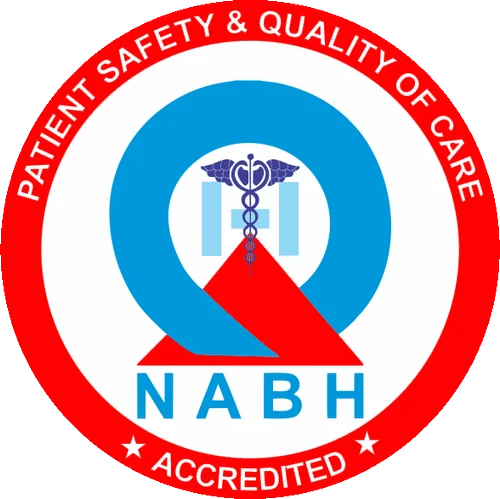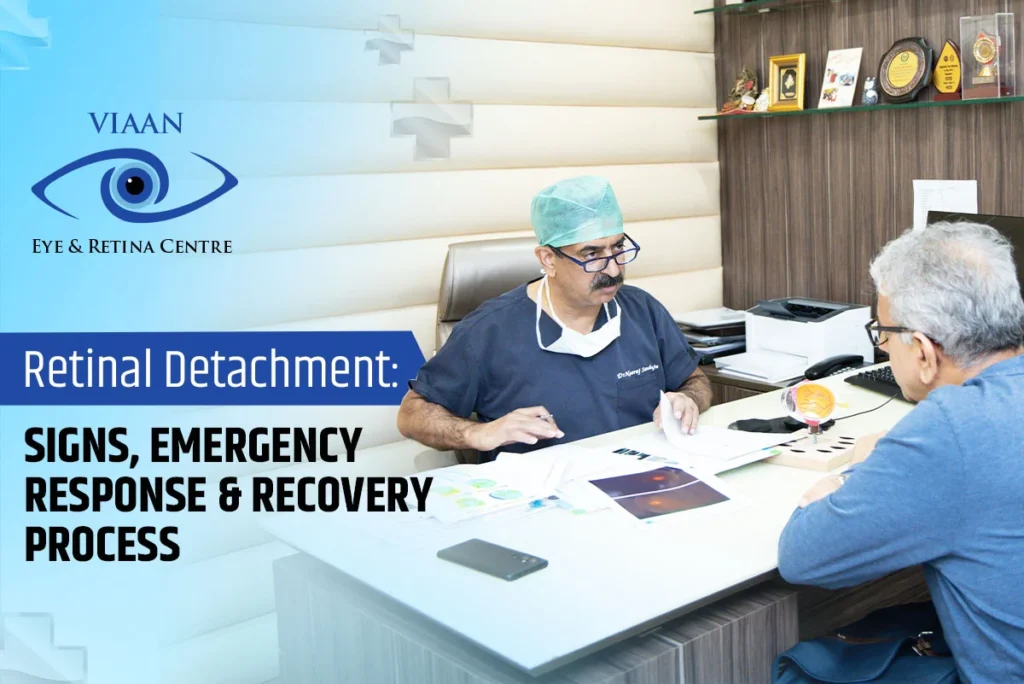Seeing the world clearly is a precious gift, and retinal detachment poses a significant threat to that ability. It’s a potentially blinding condition where the light-sensitive layer at the back of your eye, the retina, separates from its underlying support structure. While a frightening prospect, early detection and prompt treatment can significantly improve your chances of a full recovery.
This article delves into the crucial aspects of retinal detachment, empowering you to recognize the warning signs, navigate the emergency response, and understand the recovery process.
Understanding the Detachment:
The retina plays a vital role in vision by converting light into electrical signals sent to the brain. In a retinal detachment, fluid accumulates beneath the retina, causing it to lift and disconnect from the underlying tissue. This disruption prevents proper light detection and signal transmission, resulting in vision loss.
Recognizing the Warning Signs:
Retinal detachment often develops suddenly, and experiencing any of the following symptoms warrants immediate medical attention:
- Sudden increase in floaters: These are dark spots or squiggly lines that drift across your vision. While some floaters are common and harmless, a sudden surge often indicates retinal detachment.
- Flashes of light: Seeing flashes or streaks of light, especially in peripheral vision, could be a sign of retinal tears, which precede detachment.
- Curtain or shadow over your vision: As the detachment progresses, you might experience a darkening curtain or shadow covering a portion of your field of vision, typically starting at the periphery and progressing inwards.
- Blurred vision: Sudden deterioration in vision, especially in one eye, is another crucial indicator.
Seeking Emergency Response:
Time is of the essence when it comes to retinal detachment. If you experience any of the aforementioned symptoms, seek immediate medical attention from an ophthalmologist (eye surgeon). Delaying treatment can significantly reduce your chances of full vision recovery.
Diagnosis and Treatment:
The ophthalmologist will perform a comprehensive eye exam, including dilating your pupils to get a detailed view of the retina. Based on the examination, they may recommend various treatment options, such as:
- Laser photocoagulation: This procedure seals retinal tears to prevent fluid buildup and further detachment.
- Cryopexy: Freezing the edges of the tear creates scar tissue, reattaching the retina.
- Vitrectomy: Involves removing the vitreous gel (jelly-like substance in the eye) and repairing the tear or detachment directly.
The Recovery Process:
Following treatment, you can expect some restrictions depending on the procedure performed. Recovery time can vary from days to weeks, and regular follow-up appointments are crucial to monitor healing and address any complications.
Tips for a Smooth Recovery:
- Rest your eyes: Avoid strenuous activities that could put strain on your eye.
- Medications: Take prescribed medications as directed by your doctor.
- Eye protection: Wear protective eyewear as advised by your doctor to shield your eye from injury.
- Patience: Remember, healing takes time. Be patient and follow your doctor’s instructions diligently.
Living with Retinal Detachment:
While some individuals experience complete vision restoration after treatment, others may have lasting vision impairments. In such cases, adapting to the vision changes and exploring resources for low vision can be helpful. Support groups and rehabilitation services can also provide valuable assistance in adjusting to life after retinal detachment.
Taking the Initiative:
Maintaining regular eye exams, especially if you have risk factors like nearsightedness, previous eye trauma, or a family history of retinal detachment, is crucial for early detection and better outcomes. Being aware of the symptoms and seeking immediate medical attention upon experiencing them can significantly improve your chances of preserving your vision- suggested by an eye specialist in gurgaon.
Your eyesight is a precious gift, and knowing about retinal detachment can make a huge difference in preserving it. This guide empowers you to recognize signs early, get prompt help, and understand the recovery journey for a proactive approach to eye health.
Here at Viaan Eye & Retina Center, we’re here to support you. We’re not just any eye hospital; we’re a team of experts based in Gurgaon, committed to providing the best care for retinal detachment. If you or someone you know is going through eye issues, don’t hesitate to reach out to us. Your vision matters to us, and we’re ready to guide you through the process. Schedule an appointment today – let Viaan Eye & Retina Center be your trusted partner on the path to clearer and healthier eyes.



